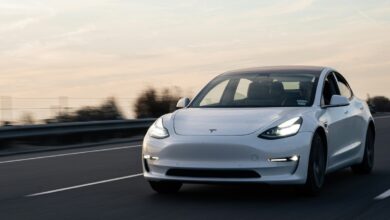Independent Research Firm Says Proposed Auto Tariffs Would be ‘Extremely Detrimental’
Center for Automotive Research (CAR), an independent and nonprofit research firm, has sounded alarm regarding potential tariffs on foreign vehicles and auto parts. The Trump Administration will reportedly decide within the next 90 days the auto tariffs it has proposed under Section 232 of the Trade Expansion Act of 1962, citing national security concerns.
“Even after taking into account the mitigating effects of the new United States Mexico Canada Agreement (USMCA), tariffs on autos and auto parts under Section 232-¦would still be extremely detrimental to consumers and the U.S. economy, and cause significant vehicle prices increases and job losses,” CAR stated in a news release.
In July, CAR found that across-the-board tariffs on autos and auto parts would lead to substantial increases in the price of all new vehicles sold in the U.S., along with significant decreases in both annual new-car sales and auto industry jobs.
CAR’s latest analysis provides 10 scenarios based on different combinations of U.S. trade policies and deals including: Section 232 autos and auto parts tariffs; the USMCA; current Section 301 tariffs on Chinese imports; and current Section 232 steel and aluminum tariffs.
“If the USMCA is implemented in its current form, other tariffs continue unmodified, and the Section 232 auto and auto parts tariffs are imposed-”even with exemptions for Canada, Mexico and South Korea-”CAR estimates that as many as 366,900 U.S. jobs will be lost, including as many as 77,000 franchised dealership jobs,” CAR stated. “U.S. light-duty vehicle prices will increase by $2,750 on average. U.S. new light-duty vehicle sales will drop by up to 1.3 million units per year. Many consumers will be forced into the used car market, and the cost of maintaining and repairing vehicles will go up.”
CAR’s research also found that broad-based Section 232 autos and auto parts tariffs would still be responsible for more than 90 percent of the total economic harm caused by implementation of the collective trade policies currently being pursued.
“This analysis confirms that broad Section 232 tariffs on autos and auto parts still present the biggest trade-policy threat to consumers and the U.S. economy,” said Peter Welch, NADA president and CEO. “NADA understands and appreciates the administration’s attempts to level the trade playing field and eliminate unfair trade practices, but expansive Section 232 auto tariffs are the wrong tool for the job because they will lead to dramatic price increases, depressed vehicle sales and job losses.”
Welch, who testified on the topic last July before the Department of Commerce, again encouraged the Trump Administration to avoid imposing broad-based tariffs on autos and auto parts.
“We should continue to work together to address genuine trade concerns,” he said, “but without hurting American consumers and small businesses in the process.”



